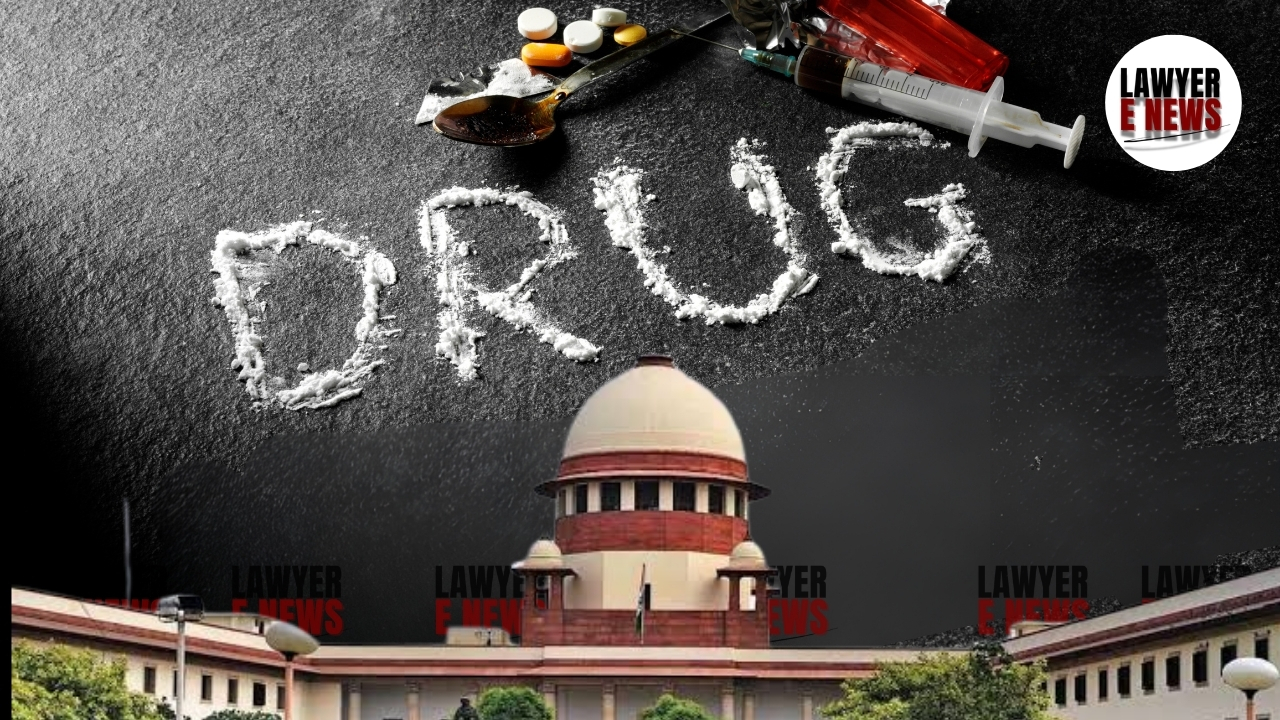-
by Admin
16 February 2026 1:47 PM



“To allow local officials to impose prohibitions absent a Section 26A notification would dismantle the very design of the Drugs and Cosmetics Act” – In a resounding affirmation of constitutional and statutory discipline, the Supreme Court of India on 19 December 2024 quashed the actions of state officials and the Allahabad High Court that had effectively banned the sale of Aromatic Tincture of Cardamom by medical shops, ruling that “local authorities cannot override the centralized scheme laid down under the Drugs and Cosmetics Act, 1940”. The Court emphasized that unless the Central Government issues a notification under Section 26A, the product remains legal and cannot be treated as a prohibited substance.
The judgment came in the case of M/s Bhagwati Medical Hall and Another v. Central Drugs Standard Control Organization and Others, where a bench of Justices Vikram Nath and Prasanna B. Varale restored the appellants’ right to carry on trade, holding that arbitrary state interference violated Article 19(1)(g) of the Constitution.
“The Respondent authorities cannot, on their own accord, treat this lawful product as a ‘prohibited article’. Any such classification by subordinate authorities would undermine the statutory scheme.”
The Supreme Court firmly declared that the power to ban, restrict, or regulate any drug lies solely with the Central Government, and must be exercised through a formal notification under Section 26A. Any other mechanism, it held, would amount to “circumventing the legislative design”.
“Fundamental Right to Trade Cannot Be Suspended by Executive Fiat” – Apex Court Calls Out Abuse of Power
The appellants, licensed medical traders based in Agra, had been harassed, inspected, and effectively forced to shut down by State Drug and Excise authorities, who alleged that the aromatic tincture was being abused as a cheap substitute for alcohol. However, the Court made it clear that allegations of misuse cannot override due process:
“Even if concerned about potential misuse, the authorities must proceed through lawful mechanisms. Arbitrary bans are no substitute for statutory compliance.”
The Court noted that the appellants held valid licenses and sold the tincture—used to treat digestive ailments—procured from government-approved sources. The substance is listed in the British Pharmacopoeia and is not among the drugs prohibited by any gazette notification.
Dismissing the High Court’s finding that the tincture was a “prohibited article,” the Supreme Court held that such a categorization can only result from a Section 26A notification, and not from “the whim or overreach of subordinate authorities”.
“Drug Inspectors Cannot Ban What the Law Permits” – Scope of Section 22 Explained
The respondents attempted to justify their action under Section 22 of the Drugs and Cosmetics Act, which deals with powers of drug inspectors. The Court responded sharply, stating:
“Section 22 empowers inspections and procedural enforcement. It does not authorize a functional prohibition of a licensed product.”
The Court observed that problems of misuse, if genuine, could be tackled through record-keeping, license monitoring, and regulatory checks—but never by bypassing the statutory scheme.
“Section 26A represents the only valid path to prohibit a drug. This centralized control ensures uniformity and prevents fragmented enforcement based on speculative harm or local policy.”
“Licensing Confers Legal Rights — They Can’t Be Stripped Without Legal Process” – Court Defends Business Liberty
The Court further ruled that by barring the appellants from selling the tincture without lawful basis, state officials violated their right under Article 19(1)(g).
“A duly licensed trader is entitled to carry on business in a product that remains lawful unless and until lawfully prohibited.”
The ruling not only vindicates the appellants but also issues a broader constitutional caution against unauthorized executive interference in regulated businesses, especially when the product in question remains legal under national law.
“Without Notification Under Section 26A, No Drug Can Be Declared Off-Limits” – High Court Orders and State Actions Quashed
The Supreme Court set aside the High Court’s orders dated 12 July 2022 and 22 September 2022, and also quashed the District Magistrate’s order of 28 February 2022 and Drug Inspector’s letter dated 11 April 2022, stating that:
“The statutory scheme under the D&C Act deliberately centralizes the ultimate decision-making power over prohibition with the Central Government.”
It directed that the appellants are entitled to resume their trade in the aromatic tincture and any other lawfully licensed medicine, and that no state authority may interfere unless a valid prohibition under Section 26A is issued by the Centre.
The Court's final words serve as a reaffirmation of rule-based governance: “The statutory scheme envisions uniformity, predictability, and legal certainty—values that would be undermined if local authorities could unilaterally impose prohibitions contrary to the nationally determined regime.
Date of Decision: 19 December 2024
